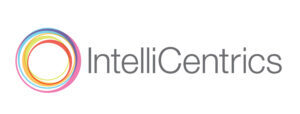Chelsea and Westminster Hospital is a busy, central London healthcare facility. Each year it receives 472,000 outpatient visits, 121,000 people in A&E and manages 23,000 day case operations. So, it’s important that the hospital maintains convenient public access, whilst protecting everyone on site.
The challenge
Chelsea and Westminster Hospital NHS Foundation Trust cares for nearly one million people. To deliver a high quality of care to its patients, the Trust works with a number of carefully selected commercial partners who provide valued support, expertise and products.
The Trust’s largest site, Chelsea and Westminster Hospital, is a high-profile facility, which many potential suppliers target to sell products and services. As for many other hospitals, this presents both opportunities and challenges to procurement and clinical teams.
With high numbers of commercial visitors accessing the hospital there was no audit trail of who was visiting, why and if they were safe. This was especially important in patient-sensitive areas such as the main theatres, where patients are often vulnerable and at risk of infection.
The hospital also faced the increased likelihood of unsanctioned products, which not only pose potential safety issues, but can also impact on hospital budgets.
Dorota Kugaczewska, Theatre Business Manager, explains, “There are lots of commercial visitors we do need to come in to check stock and to support cases. But we also used to have a lot of people coming to sell products, so they’d go to see the surgeon, who didn’t want to be rude and allowed them to come. We didn’t know who was in. We had no control.”
From a procurement perspective, Paulina Crawford, Projects & Tenders Manager, adds, “The consultants don’t hold the budget. If they like the product they don’t understand why they can’t have it. However, it could be more expensive than an alternative, or there could be a better solution. We need to check our current spend and test the market first, to make sure that we are compliant with procurement rules and regulations, before we make a decision on which product to purchase.”
These challenges were recognised at a high level, and a Trust-wide policy was put in place. “Following Lord Carter’s report on operational productivity, which identified the importance of managing sales reps in the NHS, our CEO decided that consultants were being influenced by company reps, and that any changes to existing products should be managed through procurement,” says Paulina.
How we helped
The IntelliCentrics SEC³URE service manages commercial visitors’ compliance to the hospital’s safety and procurement requirements. It provides the hospital with a web-based check in/out capability, timed and dated photo badging and the ability to control individual access. The service also provides management information on commercial visitor activity. All at no charge to the hospital.
Chelsea and Westminster Hospital specified minimum access requirements, deciding that all commercial visitors must have general liability insurance and evidence of employer product or service competency.
Then, if accessing patient-sensitive areas such as theatres, they also need evidence of a theatre access course and blood borne pathogens training, plus immunisations such as MMR and TB and also a standard DBS background check.
The Trust allowed time for visitors to register and upload credentials, then to enforce their access requirements, the Trust adopted a policy that any commercial visitor that wasn’t compliant would be admitted once then access would be revoked.
Paulina explains, “We have strict rules. They have to register, accept our visitors’ policy, and show that they have vaccinations and paperwork in place. Not all commercial visitors have contact with patients, but even if they pass a ward there is danger.”
If the hospital needs any help in ensuring commercial visitors understand the requirements, the IntelliCentrics team is on hand to help. “Another aspect that is very good about the service is that I can speak to the team at any time and they will help and advise,” says Dorota. Paulina agrees, adding, “The team are brilliant. They always take action and are very helpful. We do not always get the same service from other suppliers.”
New suppliers and clinical innovations are managed initially by the Trust’s procurement team, then reviewed with clinical colleagues on the Clinical Product Innovation Group (CPIG). The SEC³URE service provides a range of management information reviewed by the CPIG, including commercial visitor activity, compliance levels and revoked visitors.
The results
By implementing SEC³URE, and taking a stance against non-compliance, Chelsea and Westminster Hospital has largely eliminated unsolicited visits, and benefitted from a 60% reduction in commercial visits to main theatres – saving clinical time, enhancing patient safety and protecting procurement budgets – with no reduction in essential clinical product support from approved suppliers.
“The SEC³URE service has helped both by reducing the number of visits to the hospital, and by showing who is visiting and why,” says Paulina. “The risk of unsanctioned products is reduced as those commercial visitors no longer have unrestricted access.”
Dorota adds “We’ve used two services in the past but this is the only one that is actually visibly working. Before we didn’t know who was coming in, we had no control. Now it’s totally different – it is functioning. In main theatres, we’ve seen around a 60% reduction in the number of visits, but the visits for required services haven’t stopped.”
In a typical month, the hospital now receives 48 commercial visits to main theatres, compared to around 120 before the service was implemented, a reduction of 72 visits. If each visit takes on average an hour, this potentially saves 72 hours per month and 864 hours per year of clinical time.

To view and download a pdf of this case study, click on the image below.

